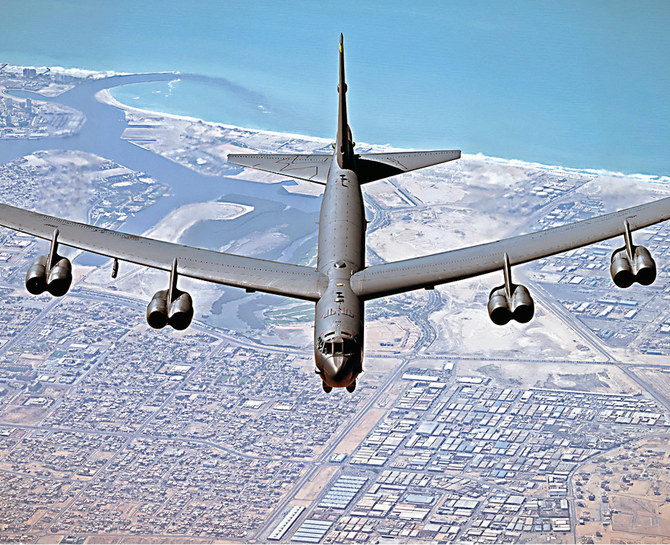LONDON: Military planners are reappraising their arsenals and procurement policies in the wake of the Israel-Hamas conflict, as experts warn that the old world order is finished, leaving the shape of future global security threats far more amorphous and armament needs far less certain.
Following the Hamas attacks on southern Israel on Oct. 7, the Israeli government was swift in launching retaliatory strikes against the Palestinian militant group’s strongholds in the Gaza Strip, with talk of an all-out ground offensive from the off.
Israeli military spokespersons suggested early on that Hamas would be quickly routed and the fighting would be over within three months. This initial confidence proved short-lived, however, as the reality of the conflict began to sink in.
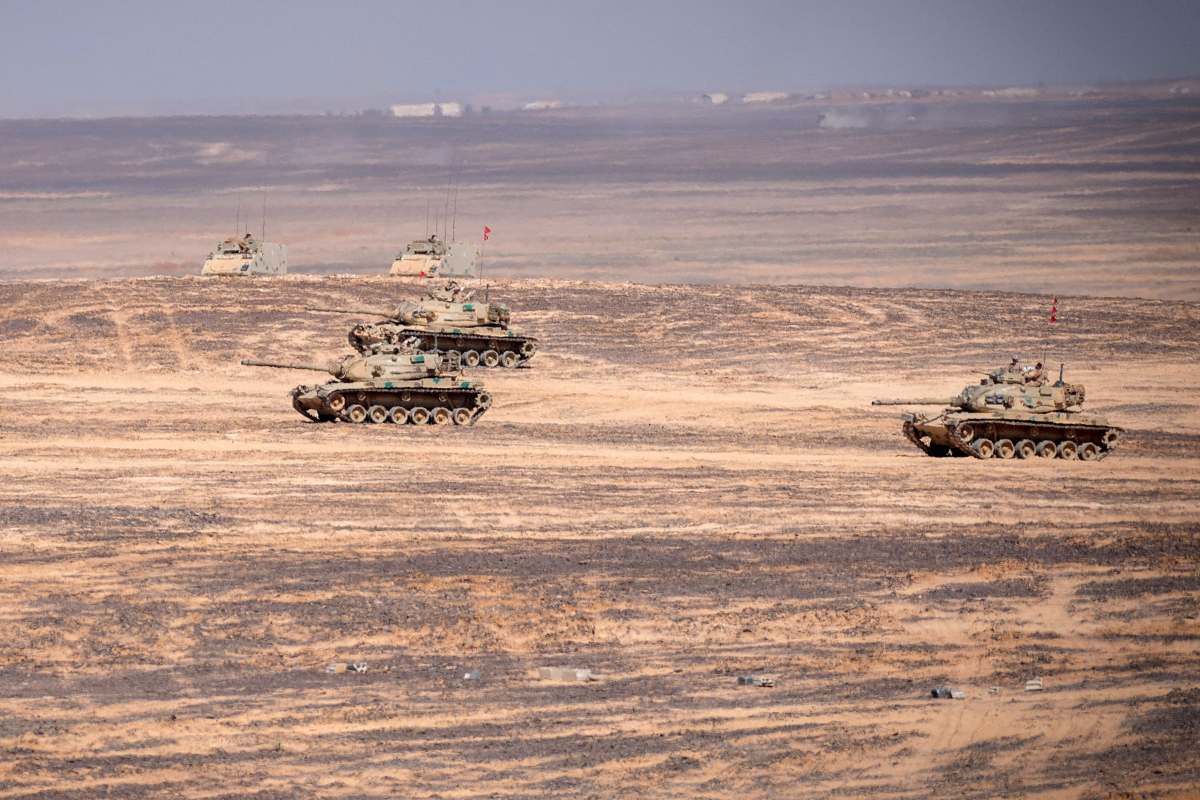
Jordanian battle tanks taking part in a tactical military exercise on September 11, 2023. (Jordanian Royal Palace handout photo/AFP)
Each day that passes indicates the Israeli military is digging in for the long haul — a situation that is generating anxiety in the corridors of power among Israel’s Western allies, mindful of the potential for regional escalation.
Adding to that concern is the reality that the Israel-Hamas conflict is not taking place in a vacuum. European and US munitions have for more than 18 months been flooding into Ukraine in support of its fight against Russia.
Jens Stoltenberg, the NATO secretary general, told the NATO-Industry Forum in Stockholm at the end of October that many of those involved in supporting Ukraine had “significantly depleted” their stocks.
“Now we need to ramp up production to meet Ukraine’s needs, but also to strengthen our own deterrence and defense,” he said.
With one conflict already stretching NATO’s own defense posture, the eruption of a second hot war elsewhere in the world is further compounding security concerns.
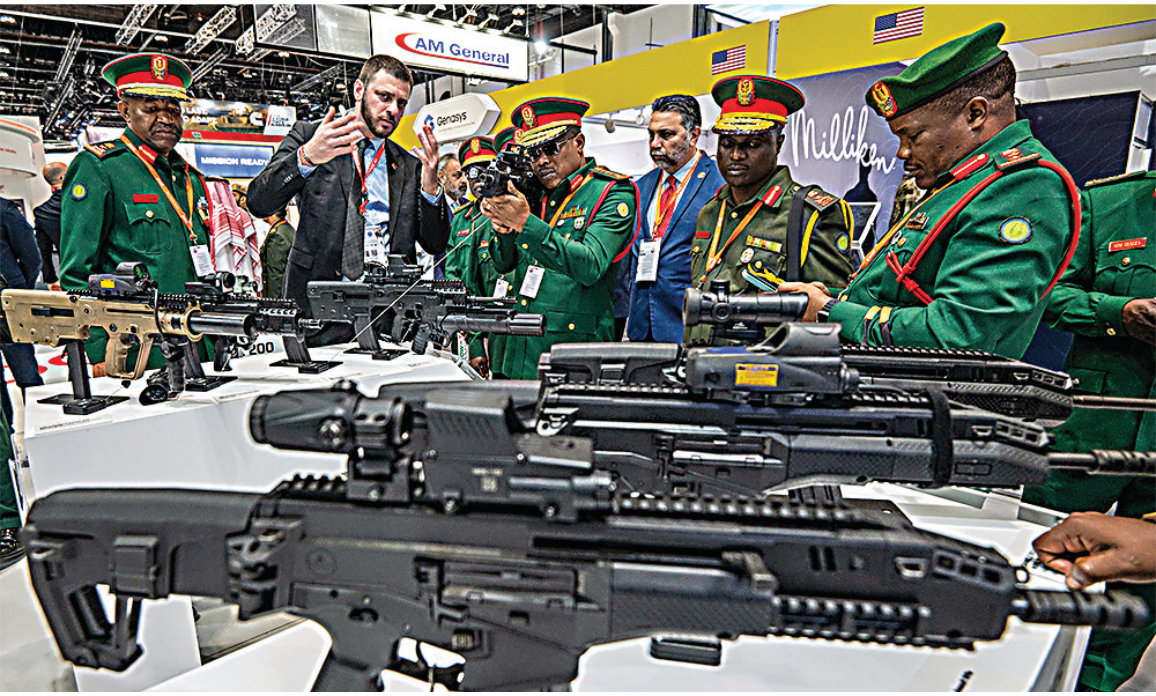
Arab militaries are planning for threats, left, from man-portable anti-tank guided missiles and locally produced anti-tank rockets. (AFP)
For Julia Roknifard, assistant professor at the University of Nottingham’s School of Politics, History and International Relations, defense procurement is increasingly influenced by how states perceive themselves in relation to the post-Second World War order that resulted in the formation of the UN.
“I think before getting to the point of discussing weaponry and ideas of nuclear proliferation and arms races, it is vital to recognize how the context is changing all of this,” Roknifard told Arab News.
“To understand this, we have to start with the restructuring and refining of the international system since Feb. 24, 2022,” the day Russia launched its full-scale invasion of Ukraine.
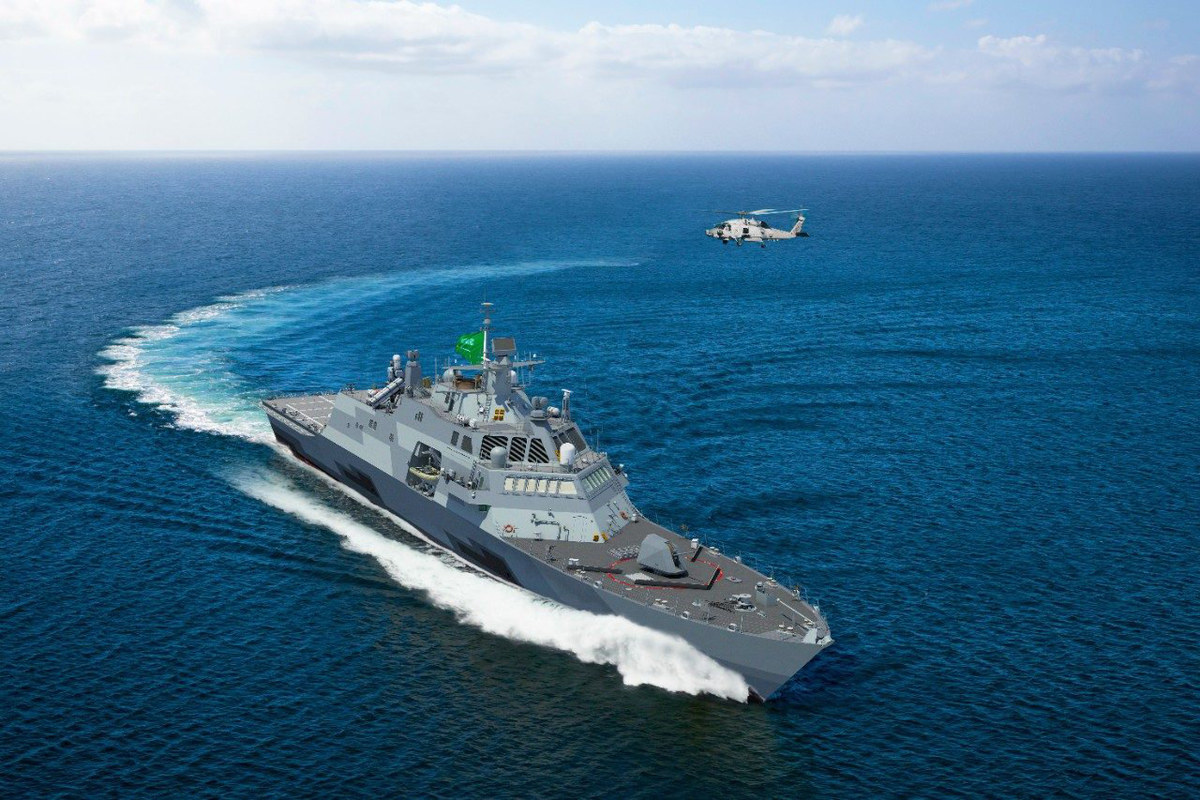
The primary concern of Middle East countries is more related to sourcing armaments efficiently and that may mean buying less from US suppliers and more from Europe or from China or even from Russia. AFP
“If the invasion of Ukraine showed the international order was not working, the Western response to Israel’s retaliation after the Hamas attacks showed that the order could also no longer be believed.
“What it showed was that not only was the international system divided on values, but that it was also no longer unified on the rules in which they engaged one another in the manner that they had been, or at least had been seen to be, before.”
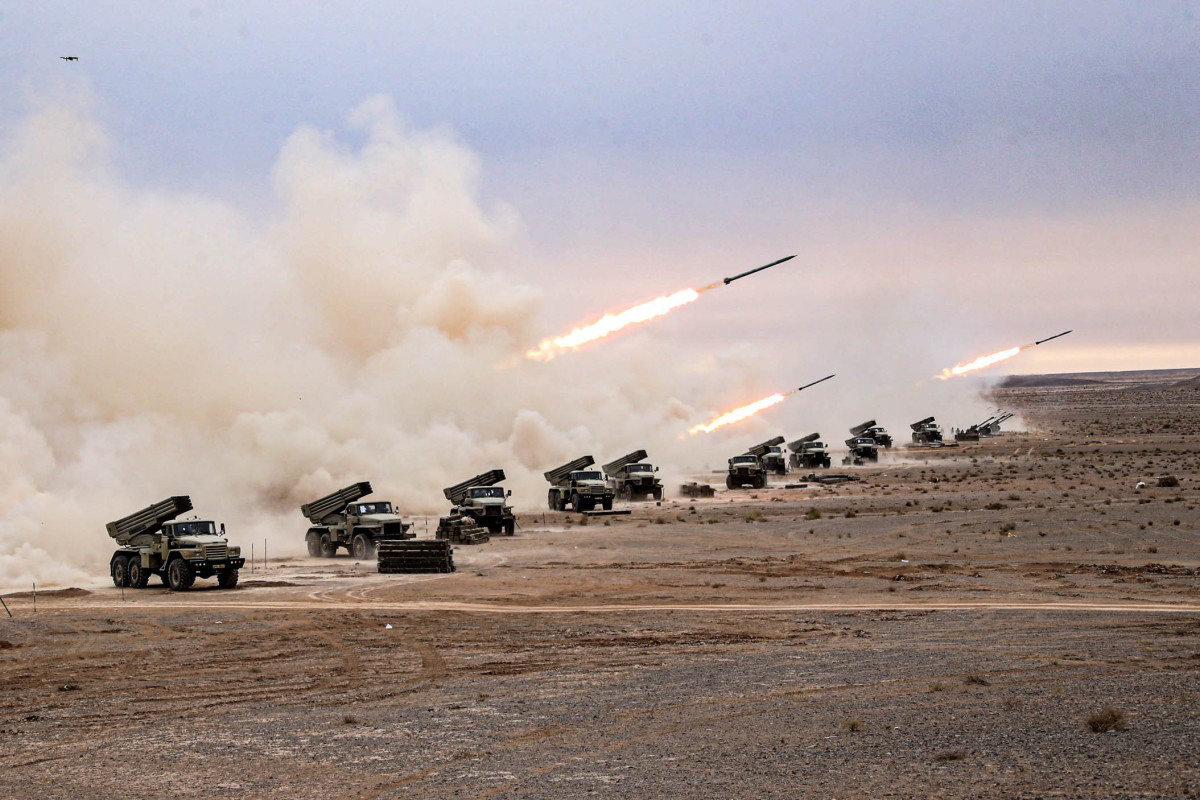
A handout picture provided by the Iranian Army media office on October 28, 2023 shows missiles being launched during a military drill in the Isfahan province in central Iran. (AFP)
Amid the perceived breakdown of this US-led international order, Washington’s role as the global security guarantor has faced mounting scrutiny. This has resulted in marked upswings in defense spending among states that were previously willing to rely on their alliances with the US.
This is evident from the rise in the defense spending of Middle Eastern states and Turkiye.
Figures from the Stockholm International Peace Research Institute show that the global average outlay on defense against gross domestic product was 2.2 percent last year. Those same figures showed that Middle Eastern defense spending topped 3.9 percent of GDP — well above the global average.
MENA Military Expenditure
World - $2.21 trillion
Israel - $23.41billion
Turkiye -$10.64 billion
Iran - $6.8 billion
Lebanon - $4.74 billion
Iraq - $4.68 billion
Egypt - $4.65 billion
Syria - $2.49 billion
Jordan - $2.32 billion
Source: World Bank, SIPRI Yearbook: Armaments, Disarmament and International Security
“I think part of this is tied to the notion that world powers are not trusted,” said Roknifard. “What you see is one of them siding with one camp, and this won’t be done discreetly, and then another will do the same.
“This illustrates what observers will recognize not as a moral decision, but one based on pure interest and balance of power. It is hard to have trust in Washington while it stands as this very biased party.
“Look at the rest of the world, not just the Muslim world. Look at the non-Muslim world. It sees the struggle in Palestine as a nationalist cause against oppression.”
MENA militaries by number of personnel
Iran - 575,000
Egypt - 450,000
Morocco - 200,000
Iraq - 200,000
Israel - 173,000 (and 360,000 reservists)
Algeria - 130,000
Syria - 100,000
Jordan - 90,000
Lebanon - 80,000
Source: Statista, Reuters
Amer Al-Sabaileh, a non-resident fellow at the Stimson Center, a Washington-based security think tank, believes that the shift away from reliance on superpowers has been prompted in part by the changing nature of conflict
Where the old model of defense procurement was structured around notions of state-on-state hostilities, Al-Sabaileh says this has shifted to more asymmetric models of warfare, particularly in the Middle East.
“The style of conflict in the Middle East is not traditional — it is all by proxy,” he said. “Even Iran. They don’t care about an open conflict. They care about the proxy conflict that stops them from getting to the point of open conflict.
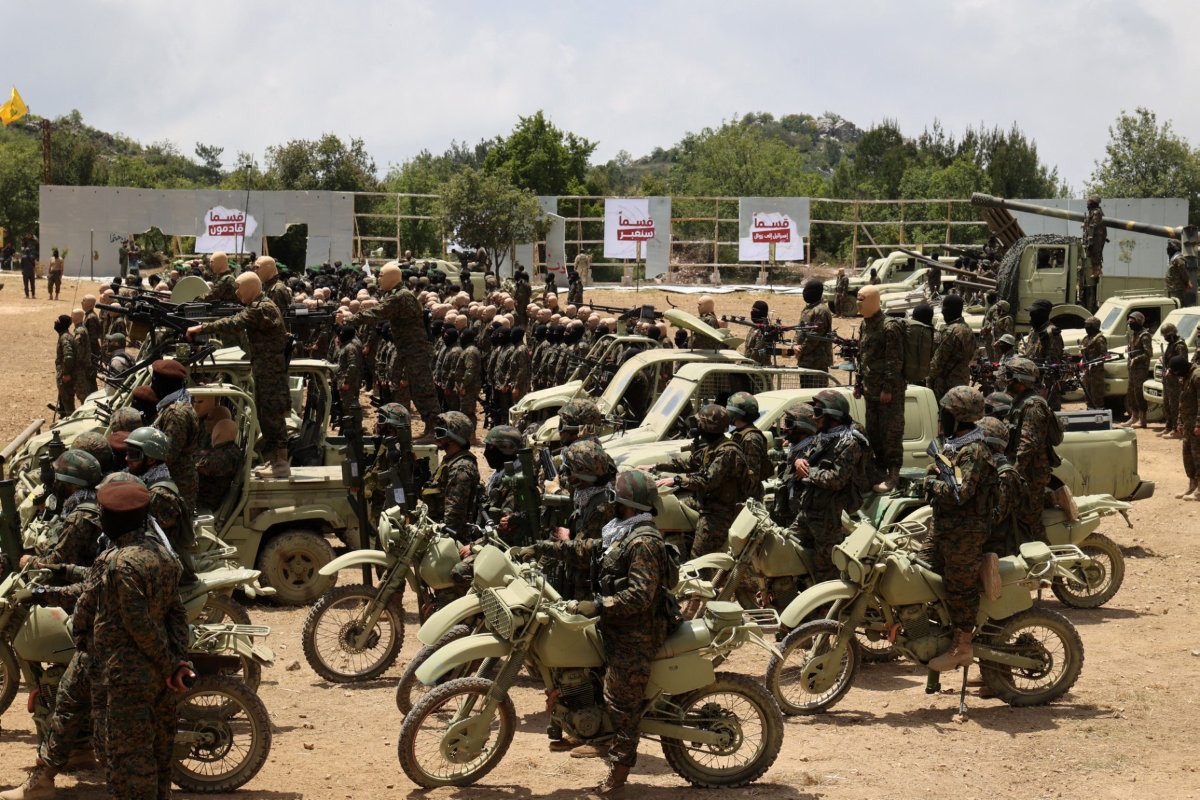
Lebanese Hezbollah fighters parade in the southern Lebanese village of Aaramta on May 21, 2023, ahead of the anniversary of the Israeli withdrawal from Lebanon. (AFP/File)
“Fighting these asymmetric wars is not easy. Daesh pushed many armies to start rethinking how they engage with these nonstate actors — setting hostages free, fighting in these tight areas. The evolution of the capacities of nonstate actors and the growth of proxy conflicts have forced traditional armies to rethink their roles and their resources.”
A recent report in The Wall Street Journal on the Israel-Hamas war shed light on the daunting challenges that countries in politically fractious neighborhoods might face from hostile militias and nonstate actors in the coming days.
“Back in 2014, Hamas mostly relied on Soviet-era projectiles with no guidance system that dated as far back as 1969 ... In this war Hamas has published videos of targeting Israeli troops with munitions dropped from drones, a Ukraine-style battlefield innovation, damaging two tanks and several military vehicles,” the report said.
Amer Al-Sabaileh, a non-resident fellow at the Stimson Center, a Washington-based security think tank, believes that the shift away from reliance on superpowers has been prompted in part by the changing nature of conflict.
“Israeli forces have also faced attackers equipped with North Korea-made F7 High-Explosive Fragmentation rockets; Kornet man-portable anti-tank guided missiles, a model developed in Russia but often copied by Iran; and locally produced Al-Yassin Tandem anti-tank rockets.”
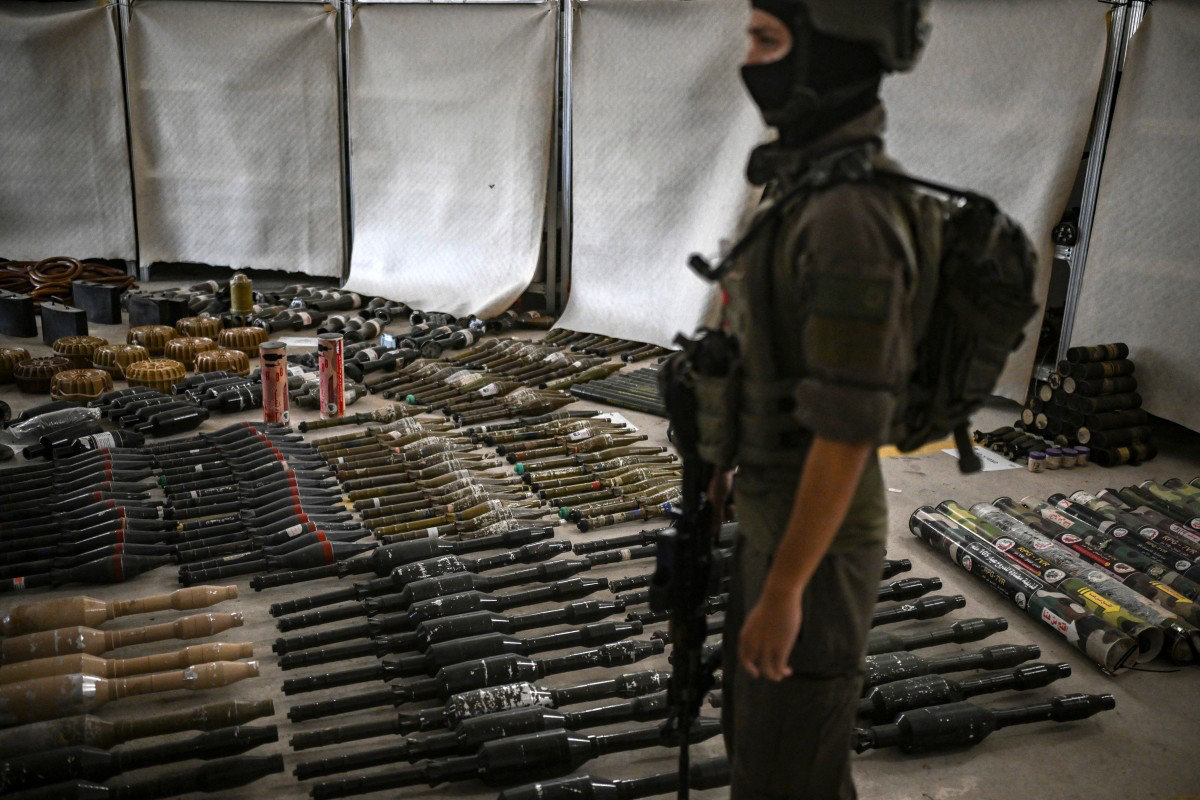
This photo taken on October 26, 2023 shows armaments recovered by Israeli troops from areas hit by Hamas militants during their October 7 attack on communities across southern Israel. Israel's military said some of the weapons used by Hamas were made in Iran and North Korea. (AFP)
Among the countries rushing to adapt their defense posture in the wake of the Oct. 7 attack in Israel is India.
Having itself been caught out in the past by assaults by nonstate actors — notably the 2008 Mumbai attack that left more than 160 dead — India is setting up a drone-based surveillance system along its border to ward off surprises, according to a recent Bloomberg report.
Talks are on to deploy “high-altitude pseudo satellites” even as the Indian army plans deployment of AI surveillance systems along its borders in order to detect intrusions and classify targets.
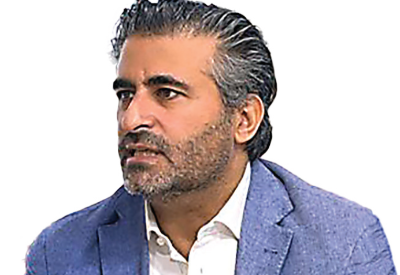
Amer Al-Sabaileh
Al-Sabaileh said it was unsurprising that many militaries feel threatened. “These nonstate actors appear with unknown identity, and they are exceeding the capacities that they are expected to have — it has been a wake-up call for many,” he added.
“It is not simply a case of fighting militias but well-trained groups with technologies that they know how to use. And they mix these with traditional and nontraditional modes. For instance, coming in via parachute — it was done before against Israel in southern Lebanon in the 1980s, but it was a regenerated idea. Then there are drones. Militaries have to expect a lot now.”
Asked what he thought the biggest change would be, Al-Sabaileh said that “where before there was dependency, there will be cooperation,” with countries less beholden to a single superpower for their protection and armament needs.
This, he said, could be seen in the trend toward diversification in the sourcing of weapons.
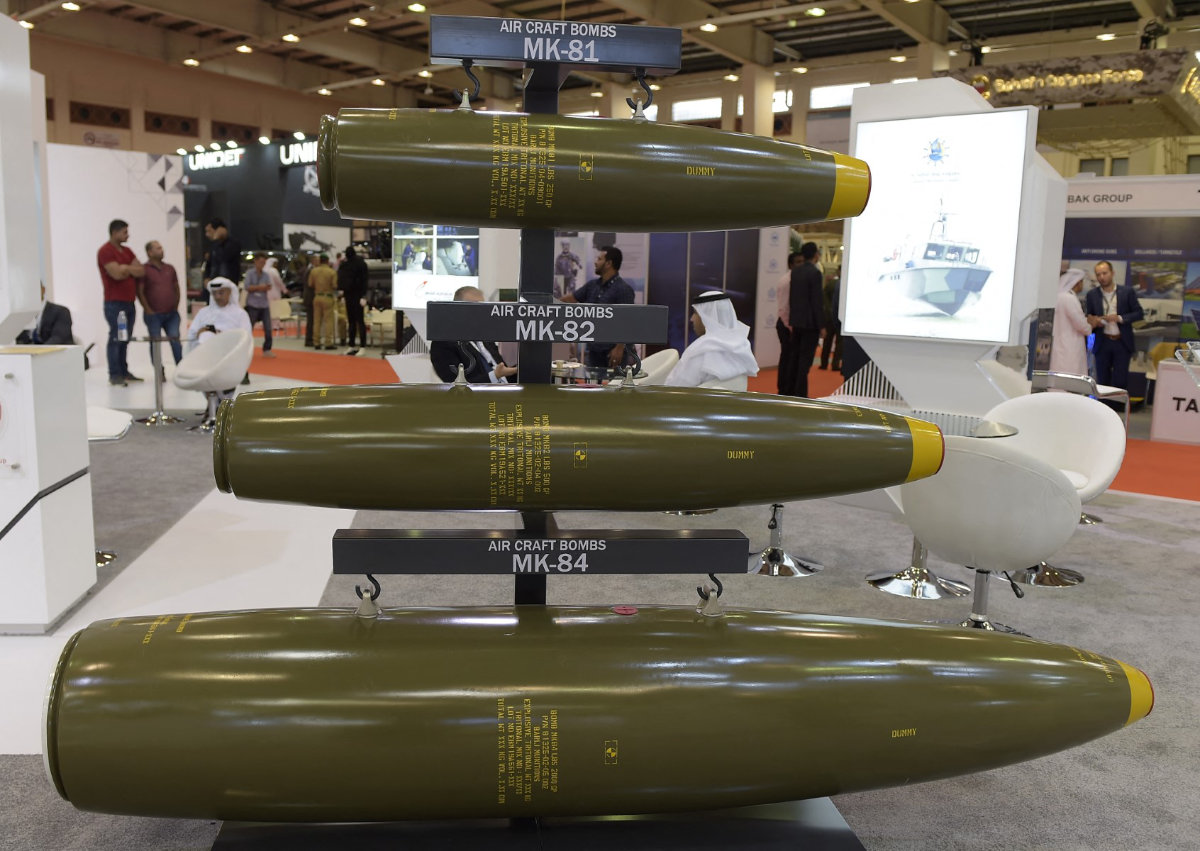
This photo taken on October 28, 2019, shows UAE-made aircraft bombs on display during the Bahrain International Defense Exhibition and Conference in Manama. The evolution of the capacities of non-state actors and the growth of proxy conflicts have forced traditional armies of the Middle East to rethink their roles and their resources. (AFP)
“Looking at the Arab Gulf countries, there is less dependency. But also what you are seeing is governments trying to diversify their sourcing of weaponry,” said Al-Sabaileh.
“This means their primary concern is more related to sourcing armaments efficiently and that may mean buying less from US suppliers and more from Europe or from China, or even from Russia. It is about looking for what is necessary for your particular needs and making supply meet demand — even trying to supply from the domestic markets.”
Both Al-Sabaileh and Roknifard may set little store by suggestions that the fighting between Hamas and Israel could spill over and encompass the globe. But for NATO, concerns are sufficiently high that even Stoltenberg himself has been pushing the defense industry to ramp up production.



